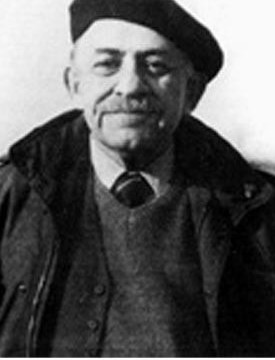Murray Bookchin (1921-2006) was an American libertarian socialist and anarchist theorist. Bookchin’s primary contribution was the development of “libertarian municipalism”, a program combining anarchist theory with an emphasis on political decentralization and direct democracy at the local level. A former Marxist and lifelong socialist, Bookchin was an associate of both Murray Rothbard and Karl Hess as well as a contributor to the Libertarian Party Newsletter. Bookchin’s experience as a grassroots organizer as well as his ability to work across the free market/socialist divide makes him a figure deserving of more attention by libertarians.
1. “If we do not do the impossible, we shall be faced with the unthinkable.”
2. “An anarchist society, far from being a remote ideal, has become a precondition for the practice of ecological principles.”
3. “The old substance of exploitative society reappears in new forms, draped in a red flag, decorated by portraits of Mao (or Castro or Che) and adorned with the little ‘Red Book’ and other sacred litanies.”
4. “People are never free of trying to be content.”
5. “The assumption that what currently exists must necessarily exist is the acid that corrodes all visionary thinking.”
6. “We are asked to orient our “strategies” and “tactics” around poverty and material immiseration at a time when revolutionary sentiment is being generated by the banality of life under conditions of material abundance.”
7. “I am puzzled by people today who, after moralizing about the need for cooperation and goodwill and love-thy-neighbor-as-thyself, suddenly invoke the most primitive, barbarous motivations for any kind of progress.”
8. “What compels me to fight this society is, of course, outrage over injustice, a love of freedom, and a feeling of responsibility for perpetuating and enlarging the human spirit - its beauty, creativity, and latent capacity to improve the world. I do not care to come to terms with an irrational society that corrodes all that is valuable in humanity, that eats away at all that is beautiful and noble in the human experience.”
9. “Power to the people’ can only be put into practice when the power exercised by social elites is dissolved into the people. Each individual can then take control of his daily life. If ‘Power to the people’ means nothing more than power to the ‘leaders’ of the people, then the people remain an undifferentiated, manipulatable mass, as powerless after the revolution as they were before. In the last analysis, the people can never have power until they disappear as a ‘people.”
10. “Nor do piecemeal steps however well intended, even partially resolve problems that have reached a universal, global and catastrophic character. If anything, partial ‘solutions’ serve merely as cosmetics to conceal the deep seated nature of the ecological crisis. They thereby deflect public attention and theoretical insight from an adequate understanding of the depth and scope of the necessary changes.”

